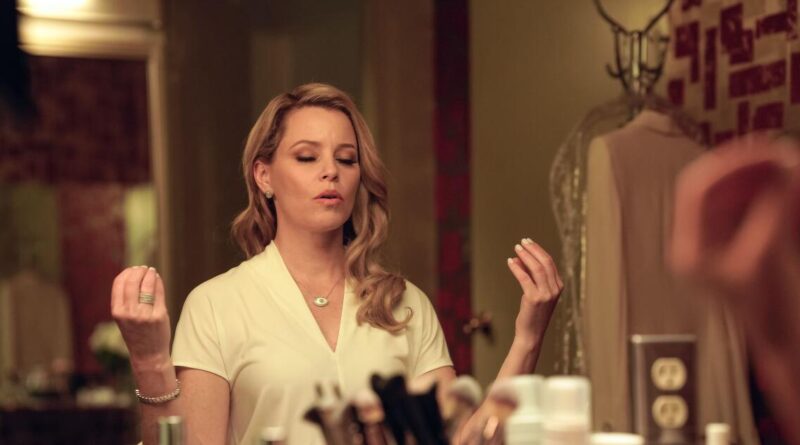Skincare Movie Review: A Dark Satire of L.A.’s Beauty Industry
Skincare Movie Review: Director Austin Peters makes a striking feature film debut with “Skincare,” a Los Angeles noir set against the backdrop of the beauty industry. Starring Elizabeth Banks, the film delves into the unraveling life of a celebrity beautician whose reputation is destroyed over two tumultuous weeks. Drawing comparisons to other dark, satirical thrillers like “Nightcrawler” and “American Gigolo,” Peters skillfully captures the essence of the genre, blending suspense with a biting critique of a city obsessed with image.
“Skincare”
Rating: R, for sexual content, graphic nudity, language throughout, some violence, and brief drug use.
Runtime: 1 hour and 34 minutes
Where to Watch: In wide release.
 The Los Angeles depicted in “Skincare” is far from the glamorous, sun-drenched paradise often portrayed on screen. Instead, it’s a harsh, unforgiving environment, where bright UV rays, fluorescent lights, and neon signs cast a revealing glow on Hope Goldman (Banks), a high-profile facialist on the brink of launching her own skincare line.
The Los Angeles depicted in “Skincare” is far from the glamorous, sun-drenched paradise often portrayed on screen. Instead, it’s a harsh, unforgiving environment, where bright UV rays, fluorescent lights, and neon signs cast a revealing glow on Hope Goldman (Banks), a high-profile facialist on the brink of launching her own skincare line.
Desperate to maintain her image and ensure the success of her product, Hope records a TV spot she hopes will catapult her to stardom. However, her financial situation is dire. She’s behind on rent for her boutique and spa in Hollywood’s iconic Crossroads of the World complex. When a rival beautician, Angel (Luis Gerardo Mendez), sets up shop on her property, the already exhausted Hope begins to unravel.
But Hope’s downfall isn’t entirely self-inflicted. A mysterious stalker starts targeting her, sending creepy text messages with video attachments, hacking her email, and slashing her tires. With her world crumbling, Hope turns to a group of questionable allies: a sleazy TV news anchor (Nathan Fillion), a mechanic (Eric Palladino), and a new friend, Jordan (Lewis Pullman), an overly enthusiastic life coach.
Banks delivers a fierce performance as the ambitious yet flawed Hope. Though she’s a victim, she’s not wholly sympathetic, and Banks skillfully navigates this complex character. Hope’s obsession with her image and the opinions of others plays a significant role in her undoing, adding a layer of schadenfreude to her story.
Pullman’s portrayal of Jordan is equally compelling. He plays a manic, obsessive narcissist who thrives on his own supply of motivational quotes, broadcasting them through his laptop camera. Jordan is a descendant of Tom Cruise’s Frank T.J. Mackie from “Magnolia,” but with the reckless ignorance of a character from Michael Bay’s “Pain & Gain.”
The film oscillates between the struggling Hope and the equally desperate Jordan, creating a dual narrative that elevates what could have been a straightforward genre exercise into something more intriguing and darkly humorous. Peters’s script, co-written with Sam Freilich and Deering Regan, isn’t as strong, however. While the plot twists and coincidences are well-constructed, there’s no deep exploration of the beauty industry beyond its surface-level glitz and superficiality. The decision to set the story in 2013 feels unnecessary, lending the film a slightly dated and clichéd feel. The soundtrack, featuring songs by Maroon 5 and Katy Perry, adds a wry sense of humor and situates the film in time, but ultimately, the period setting doesn’t contribute much to the story.
Despite its script’s limitations, Peters, much like his protagonist, excels in crafting a compelling aesthetic. With the help of cinematographer Christopher Ripley and editor Laura Zimpel, Peters has created a thrilling ’80s-style noir, capturing the essence of the genre. While the story may be shallow, Banks and Pullman bring a sense of desperation to their roles, finding depth in the superficial pleasures their characters pursue.




